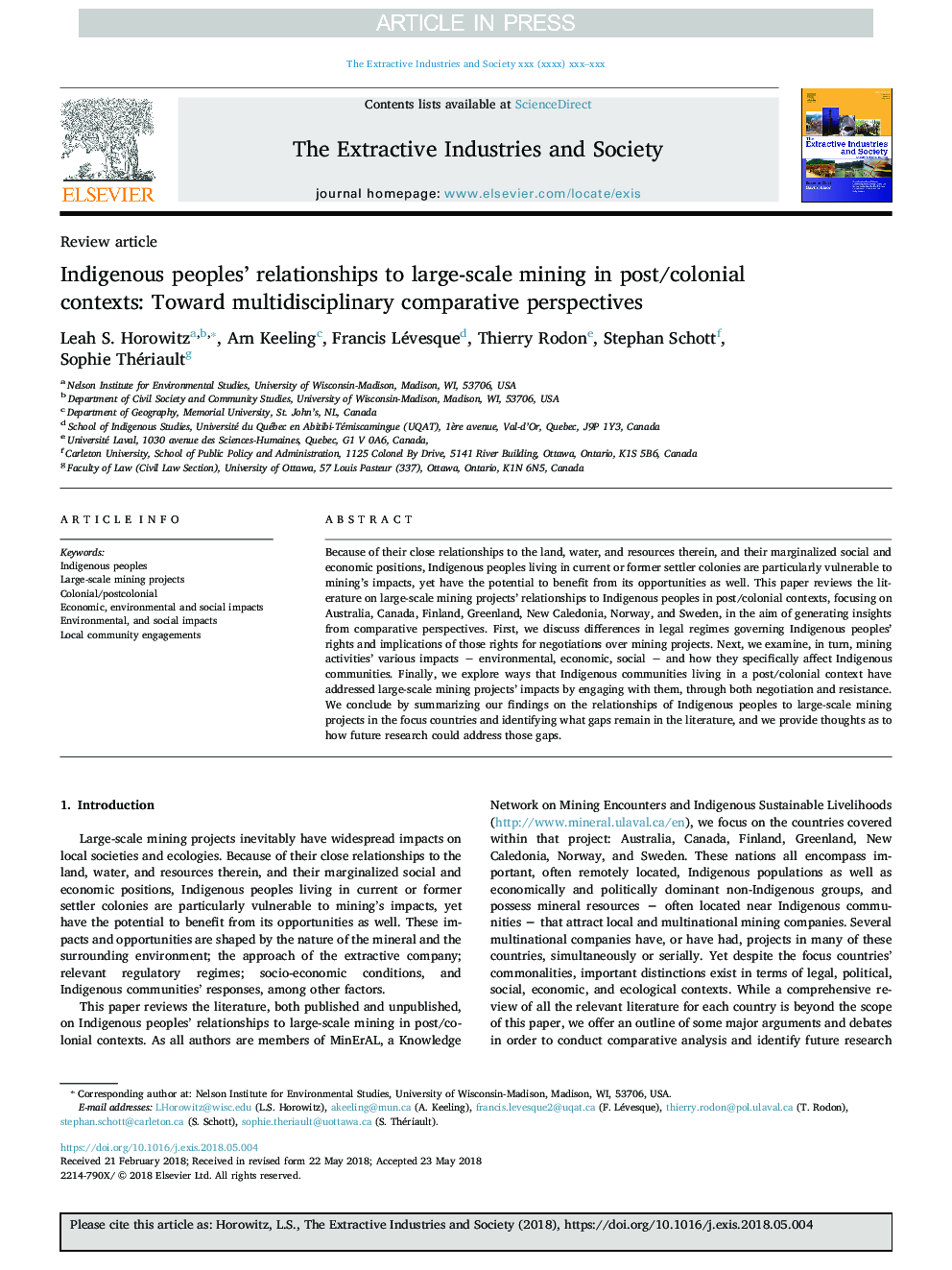| Article ID | Journal | Published Year | Pages | File Type |
|---|---|---|---|---|
| 7454169 | The Extractive Industries and Society | 2018 | 11 Pages |
Abstract
Because of their close relationships to the land, water, and resources therein, and their marginalized social and economic positions, Indigenous peoples living in current or former settler colonies are particularly vulnerable to mining's impacts, yet have the potential to benefit from its opportunities as well. This paper reviews the literature on large-scale mining projects' relationships to Indigenous peoples in post/colonial contexts, focusing on Australia, Canada, Finland, Greenland, New Caledonia, Norway, and Sweden, in the aim of generating insights from comparative perspectives. First, we discuss differences in legal regimes governing Indigenous peoples' rights and implications of those rights for negotiations over mining projects. Next, we examine, in turn, mining activities' various impacts â environmental, economic, social â and how they specifically affect Indigenous communities. Finally, we explore ways that Indigenous communities living in a post/colonial context have addressed large-scale mining projects' impacts by engaging with them, through both negotiation and resistance. We conclude by summarizing our findings on the relationships of Indigenous peoples to large-scale mining projects in the focus countries and identifying what gaps remain in the literature, and we provide thoughts as to how future research could address those gaps.
Keywords
Related Topics
Life Sciences
Environmental Science
Management, Monitoring, Policy and Law
Authors
Leah S. Horowitz, Arn Keeling, Francis Lévesque, Thierry Rodon, Stephan Schott, Sophie Thériault,
